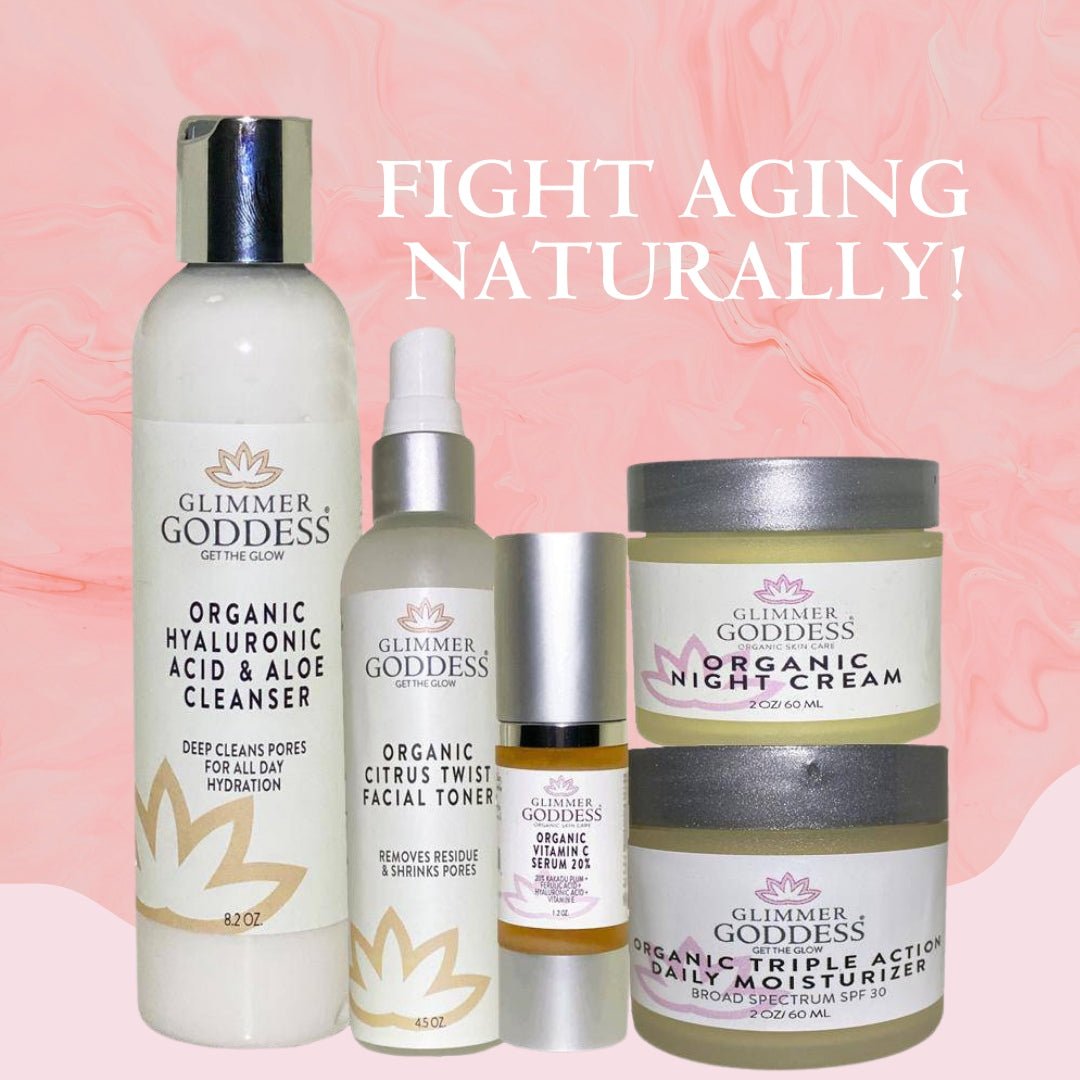
How to Know What Skincare to Use
Discover the secrets to achieving radiant skin with a personalized skincare routine. This comprehensive guide covers everything from identifying your skin type to selecting the right products and incorporating essential steps for day and night.
Unraveling the Mysteries of Your Skin: A Comprehensive Guide to Identifying and Caring for Your Unique Skin Type
How Do I Identify My Skin Type?
Determining your skin type is the key to unlocking the secrets of effective skincare. By understanding your skin's unique characteristics, you can tailor your routine to address your specific needs and achieve a radiant, healthy complexion.
Identifying your skin type involves a few simple steps:
- Observe your skin's oil production. Is it oily, dry, or a combination of both?
- Take note of your skin's texture. Is it smooth and supple, or does it feel rough and uneven?
- Examine your pores. Are they large and visible, or do they appear smaller and less noticeable?
- Consider your skin's sensitivity. Does it react easily to certain products or environmental factors?
By considering these factors, you can begin to determine whether your skin is classified as normal, oily, dry, combination, or sensitive.
What Are the Common Skin Types?
Knowing the different skin types can help you better understand your own unique complexion and tailor your skincare routine accordingly.
Here's a closer look at the most common skin types:
- Normal Skin: This skin type is well-balanced, with a smooth, even texture and no excessive oil or dryness. Normal skin is often the envy of others, as it requires minimal maintenance and is less prone to common skin concerns.
- Oily Skin: Characterized by a shiny, greasy appearance, oily skin is the result of overactive sebaceous glands that produce an excess of oil. This skin type is more susceptible to clogged pores, acne, and a dull, uneven complexion.
- Dry Skin: Dry skin is often characterized by tightness, flakiness, and a lack of natural moisture. This skin type can be prone to premature wrinkles, irritation, and an overall dull, lackluster appearance.
- Combination Skin: Combination skin is a blend of both oily and dry areas, often with an oily T-zone (forehead, nose, and chin) and drier cheeks and jawline.
- Sensitive Skin: Sensitive skin is easily irritated and may react negatively to certain ingredients or environmental factors. This skin type can be prone to redness, inflammation, and discomfort.
Understanding your skin type is the first step in developing an effective skincare routine that addresses your unique needs.
What Ingredients Should I Look for Based on My Skin Type?
Once you've identified your skin type, the next step is to curate a skincare regimen that targets your specific concerns. By incorporating the right ingredients, you can nourish, hydrate, and protect your skin, helping it achieve a healthy, radiant glow.
Here's a guide to the key ingredients you should look for based on your skin type:
-
Normal Skin:
- Antioxidants, such as vitamin C and vitamin E, to protect against environmental stressors
- Hydrating ingredients, like glycerin and hyaluronic acid, to maintain a balanced moisture level
- Gentle, non-irritating cleansers and moisturizers to maintain skin's natural balance
-
Oily Skin:
- Mattifying agents, such as clay and silica, to control excess oil production
- Salicylic acid and retinoids to unclog pores and prevent acne breakouts
- Lightweight, oil-free moisturizers to hydrate without leaving a greasy residue
-
Dry Skin:
- Emollient ingredients, like shea butter and ceramides, to replenish and lock in moisture
- Humectants, such as glycerin and hyaluronic acid, to draw water into the skin
- Gentle, creamy cleansers and rich, nourishing moisturizers to prevent further dryness
-
Combination Skin:
- Targeted treatments, using a combination of oil-controlling and hydrating ingredients
- Balancing toners and serums to address both the oily and dry areas of the face
- Lightweight moisturizers that won't overwhelm the T-zone but still hydrate the drier zones
-
Sensitive Skin:
- Soothing, anti-inflammatory ingredients, like aloe vera and chamomile, to calm irritation
- Fragrance-free and non-comedogenic formulas to minimize the risk of reactions
- Gentle cleansers and moisturizers that won't strip or irritate the skin
By tailoring your skincare routine to your unique skin type, you can achieve a healthy, balanced complexion that radiates with confidence.
Understanding your skin type is the foundation for a successful skincare journey. By identifying your specific needs and incorporating the right ingredients, you can unlock the secrets to vibrant, glowing skin that reflects your inner beauty. Embrace your skin's individuality and let it shine!
Decoding the Mystery of Ingredient Labels: Your Guide to Healthier Choices
What Do Common Ingredients Mean?
When it comes to the food we consume, understanding the ingredients on product labels is crucial. Many of us may overlook the importance of this information, but delving deeper can reveal a wealth of insights about the items we purchase.
Navigating the complex world of ingredients can be daunting, but with a little knowledge, you can unlock the secrets behind the labels.
- Commonly found ingredients like sugar, salt, and fat play significant roles in our overall health and well-being. Knowing their functions and impacts can help us make more informed decisions.
- Artificial preservatives, colorings, and flavorings are often added to processed foods, and understanding their purpose and potential risks is important.
- Deciphering the differences between natural and synthetic ingredients can provide a clearer picture of the nutritional value and quality of the products we consume.
How to Read and Understand Product Labels?
Mastering the art of label reading is a valuable skill that can empower us to make healthier choices. By taking the time to thoroughly examine the information provided, we can gain a deeper understanding of the products we're considering.
When it comes to reading and interpreting product labels, there are several key elements to keep in mind.
- The nutrition facts panel offers a wealth of information, including serving size, calories, and the breakdown of macronutrients like carbohydrates, protein, and fat.
- The ingredient list is a crucial component, as it reveals the specific components that make up the product. Paying attention to the order of ingredients can provide insights into the quantities used.
- Identifying and understanding common food additives, such as preservatives, artificial sweeteners, and flavor enhancers, can help us steer clear of items that may not align with our dietary preferences or health goals.
- Recognizing the differences between terms like "natural," "organic," and "non-GMO" can assist us in making more informed choices that reflect our personal values and preferences.
Are There Ingredients I Should Avoid?
When it comes to our health, being selective about the ingredients we consume is of utmost importance. While some ingredients are essential for our well-being, others can pose potential risks or have undesirable effects on our bodies.
Certain ingredients are often cited as "red flags" that warrant closer inspection or avoidance. Understanding the potential concerns associated with these components can empower us to make more informed decisions.
- Processed and refined carbohydrates, such as white flour and added sugars, can contribute to weight gain, blood sugar spikes, and other health issues.
- Unhealthy fats, like trans fats and certain saturated fats, have been linked to an increased risk of heart disease and other cardiovascular problems.
- Artificial preservatives, colorings, and flavorings may have adverse effects on our bodies, particularly in terms of allergic reactions, hormonal disruptions, and long-term health implications.
- Sodium, while necessary in moderation, can be problematic in excess, potentially leading to high blood pressure and other cardiovascular concerns.
By understanding the significance of common ingredients, mastering the art of label reading, and being mindful of potentially harmful components, we can navigate the complex world of food choices with greater confidence and clarity. Empowering ourselves with this knowledge allows us to make more informed decisions that prioritize our health and well-being, paving the way for a more nourishing and fulfilling relationship with the foods we consume.
Unlock the Secrets to Radiant Skin: A Comprehensive Skincare Routine
What Are the Basic Steps of a Skincare Routine?
Achieving glowing, healthy skin begins with a well-crafted skincare routine. Whether you're a beauty novice or a seasoned skincare enthusiast, understanding the fundamental steps can make a world of difference in your skin's appearance and overall health.
The key components of a basic skincare routine include cleansing, toning, serum application, moisturizing, and sun protection.
- Cleansing is the foundation of any effective routine, as it helps remove dirt, oil, and impurities from the skin's surface. Choosing the right cleanser for your skin type is crucial.
- Toning follows cleansing, helping to balance the skin's pH and prepare it for the next steps in your routine.
- Serums are concentrated treatments that target specific skin concerns, such as anti-aging, brightening, or hydration.
- Moisturizing is essential for maintaining the skin's barrier function and locking in hydration.
- Sun protection is a non-negotiable step, as it shields the skin from harmful UV rays that can lead to premature aging, sun damage, and an increased risk of skin cancer.
By incorporating these basic steps into your daily regimen, you'll be well on your way to achieving a healthy, radiant complexion. Remember, consistency is key – stick to your routine, and you'll start to see noticeable improvements in your skin's appearance over time.
How to Customize My Routine for Day and Night?
While the fundamental steps of a skincare routine remain the same, the specific products and techniques you use can be tailored to address your skin's needs at different times of the day.
Your daytime routine should focus on preparing and protecting your skin for the day ahead, while your nighttime routine should be geared towards repair and rejuvenation.
-
For the daytime:
- Choose a gentle, non-irritating cleanser to start your day.
- Incorporate a brightening serum or antioxidant-rich formula to help defend against environmental stressors.
- Apply a moisturizer with broad-spectrum SPF to shield your skin from harmful UV rays.
- Consider a lightweight, oil-free formula that won't clog pores or feel heavy on the skin.
-
For the nighttime:
- Opt for a deeper-cleansing formula, such as a cleansing balm or oil, to remove makeup, sebum, and impurities built up throughout the day.
- Use a hydrating, nourishing serum or facial oil to replenish the skin's moisture levels.
- Finish with a rich, creamy moisturizer to support the skin's natural regeneration process during sleep.
- You may also want to incorporate targeted treatments, like retinol or exfoliating acids, into your nighttime routine for more advanced concerns.
By tailoring your routine to your skin's specific needs at different times of the day, you'll be able to achieve a more balanced, radiant complexion. Remember, your skin's requirements may change with the seasons or as it evolves, so be open to adjusting your routine accordingly.
What Should I Consider When Choosing New Products?
Navigating the vast array of skincare products on the market can be overwhelming, but understanding a few key factors can help you make informed decisions and find the right products for your unique skin type and concerns.
When selecting new additions to your routine, consider factors such as skin type, ingredient lists, and product reviews.
-
Skin Type:
- Determine your skin type (normal, dry, oily, combination, or sensitive) and choose products formulated for your specific needs.
- Selecting the right products for your skin type will ensure they work effectively and don't cause irritation or breakouts.
-
Ingredient Lists:
- Carefully examine the ingredient lists of any products you're considering.
- Look for beneficial, active ingredients that address your skin concerns, such as vitamin C for brightening or retinol for anti-aging.
- Avoid potentially irritating or comedogenic (pore-clogging) ingredients if you have sensitive or acne-prone skin.
-
Product Reviews:
- Refer to trusted reviews and recommendations from skincare experts, influencers, or fellow skincare enthusiasts.
- User reviews can provide valuable insights into a product's performance, effectiveness, and suitability for different skin types.
- Pay attention to any common themes or concerns expressed in the reviews to gauge whether a product might be a good fit for your needs.
By taking the time to consider these factors, you'll be better equipped to build a skincare routine that caters to your unique skin and helps you achieve your desired results. Remember, trial and error may be necessary, but with a little research and patience, you'll find the perfect products to unlock your skin's radiant potential.
In conclusion, a comprehensive skincare routine is the key to achieving a healthy, glowing complexion. By understanding the basic steps, customizing your routine for day and night, and carefully selecting new products, you'll be well on your way to unlocking the secrets to radiant skin. Embrace the journey, and let your skin shine!
Q&A
How can I determine my skin type?
Observing oil production, texture, pore visibility, and sensitivity helps classify your skin as normal, oily, dry, combination, or sensitive.
What skincare products are best for oily skin?
Look for lightweight, oil-free moisturizers and ingredients like salicylic acid, retinoids, and mattifying agents such as clay.
What steps should I include in my skincare routine?
A basic skincare routine should include cleansing, toning, applying serums, moisturizing, and sun protection.
How should I customize my routine for day and night?
For daytime, use lightweight formulas with SPF; for nighttime, choose nourishing products that promote repair and rejuvenation.
What ingredients should I avoid in skincare products?
Avoid products with artificial preservatives, synthetic fragrances, and comedogenic ingredients if you have sensitive or acne-prone skin.
By understanding your skin type and following a structured skincare routine, you can unlock your skin's true potential. Embrace your unique needs and discover how to keep your complexion healthy, hydrated, and radiant.



